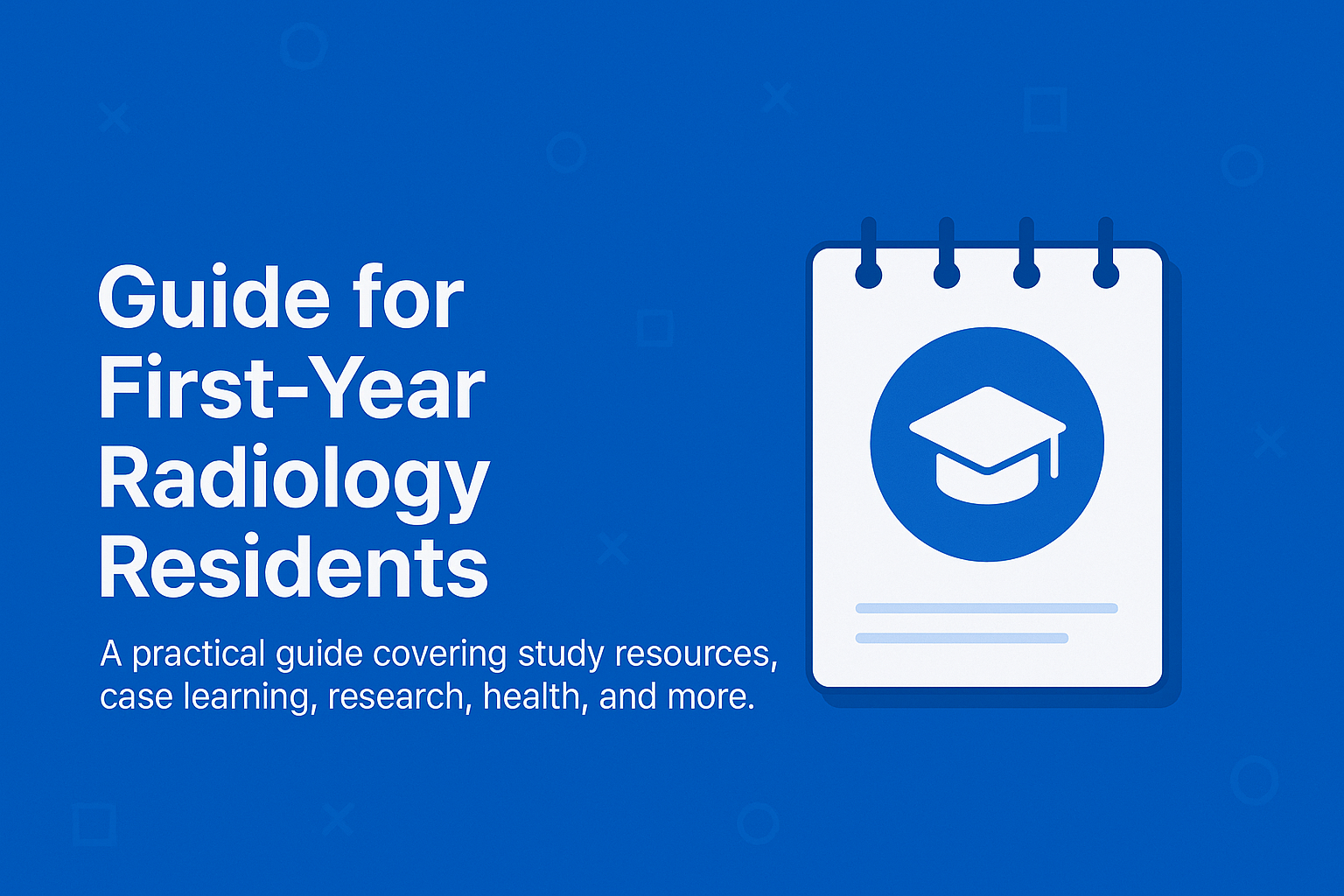Welcome to radiology. You’ve chosen a branch that looks quiet from the outside but is deeply connected with every specialty in medicine. Some people call it “non-clinical.” That’s not true. The more clinical knowledge you bring in, the sharper your imaging interpretations will be.
Most of us enter radiology with little exposure in MBBS. The first year feels like wandering in unknown territory. Here’s how to make sense of it step by step.
Start with the Basics
Don’t get lost on random websites. Begin with a few core textbooks. Keep an atlas for anatomy and a standard book for chest X-rays and ultrasound. Add a general radiology reference. These are your anchors. Once you are comfortable, add case collections, spotters, and online modules for practice.
Learn From People Around You
Your department is your real classroom. Watch how seniors approach cases. Treat technicians as teachers too—they often notice details others miss. Respect your colleagues. A supportive circle makes residency bearable.
Build Habits That Last
Keep a notebook and write down what you learn each day. Make your own presentations instead of borrowing slides—it forces you to understand. Follow up your cases; textbooks show neat pictures, real patients rarely do. Take consent seriously; explain clearly and ask if the patient has understood. Small tasks like history-taking matter as much as reporting.
Don’t Rush
Start with physics, chest radiographs, and ultrasound. Only after that move to CT and MRI. Conferences in the first few months won’t help; wait until you know the basics. Learn to use simple software that makes reporting easier.
Present, Research, Publish
The more cases and seminars you present, the more confident you’ll be. Start your thesis early—it will save panic later. Learn how to write research properly. Aim for small posters first, then papers. Writing well is as important as diagnosing well.
Protect Your Health
Night duties and emergencies will test you. Fatigue is real. Manage your sleep, exercise when you can, and don’t ignore mental health. Stress is temporary—don’t let it trick you into thinking otherwise.
Secure Yourself Professionally
Take indemnity insurance. It’s a safeguard every resident should have. Join national and international radiology societies. Many give free or discounted memberships for trainees. These open doors to journals, webinars, and conferences you otherwise can’t afford.
Learn Through Cases
Once the basics settle, dive into cases. Radiology is a language—you learn it by exposure, not by theory alone. Review chest films, abdominal cases, trauma, everything you can get your hands on.
The first year sets your foundation. Respect your seniors, value your technicians, keep your curiosity alive, and stay humble. Radiology isn’t about reporting fast, it’s about reporting right. If you get that mindset early, the rest will follow.
